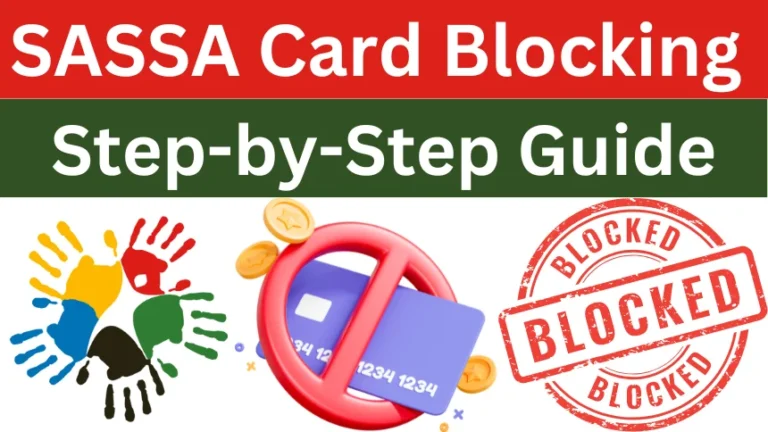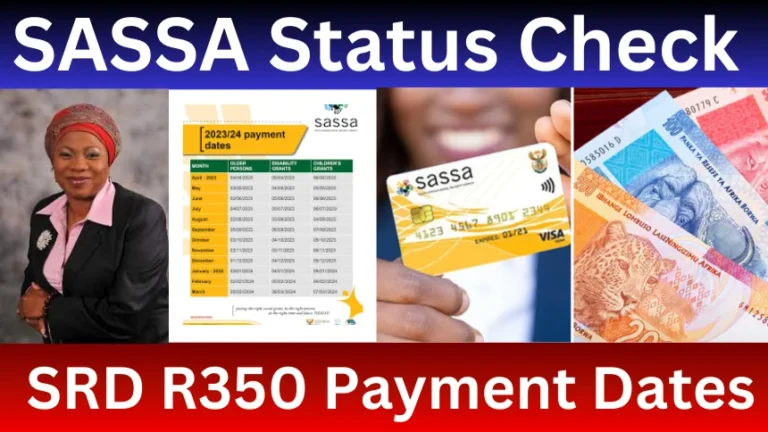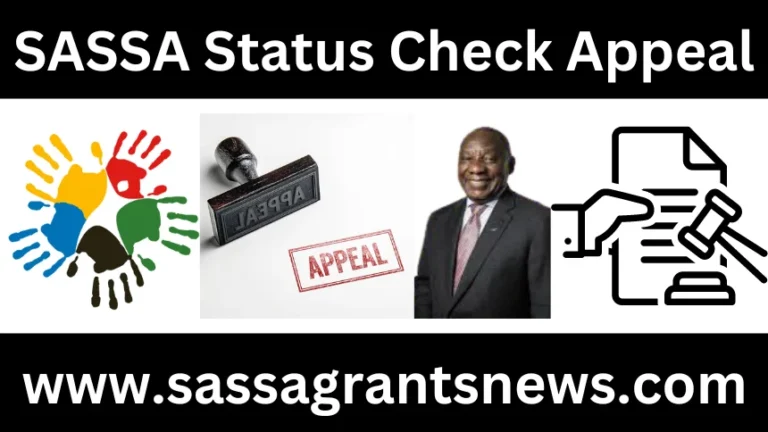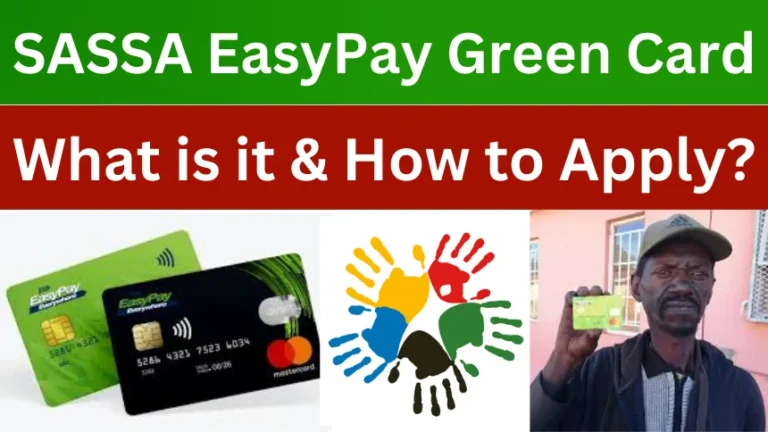How to Report SASSA Frauds & Avoid Common Scams
You may have been a victim of SASSA Fraud. Have you been a victim of SASSA Fraud? Report the incident to SASSA as soon as possible to prevent fraud and to regain control of your grant.
As a result of the growing number reports and comments about our website,
Someone else used my SRD R350 Grant details to apply for it. What do I need to do?
How can I change my mobile number if it has been changed without my consent?
My comprehensive guide is designed to help protect you from unauthorized access, and also understand what could happen to your data.
The article discusses the steps that you need to take immediately to ensure no one else receives your SASSA Grant, as well as how to block unauthorized access. It also examines possible causes for your personal information to be revealed, and how best to safeguard your data to avoid fraud in future.
Also Read About: How SASSA Grants Will Be Affected by the NHI Bill
How Scammers Steal Your Data?
To begin with, it is important to know all of the scenarios in which fraudsters could steal your information and gain access to your SASSA or SRD R350 grant. The tricks that fraudsters use are many.
- Fake SMS or Emails: Scammers pretending to represent SASSA send fake SMS and emails that target recipients of grants. They claim your grant could be in danger and demand personal information to verify or update. They will often instill a feeling of urgency, to make you feel pressured into divulging sensitive information. By sharing this information, you put both your grant and your identity at risk.
- Fake Websites: Scammers might create fake sites that look like the SASSA website. Scammers may trick you into giving them your login credentials, or your personal information. They can then access your grant. You should not click on any links that come from an unknown source, because entering personal details on these phishing websites exposes you to scammers.
- Fake Phone Calls: Calls may be received by beneficiaries claiming that they are from SASSA. They will ask for details of verification or address issues with the grants. They will fabricate stories in order to trick you into divulging your personal details, such as your PIN.
- Illegal Loan Offers: Unknown individuals offer loans to beneficiaries, requesting their SASSA cards as collateral. These individuals will either take your grant money or bill you for repayment every month. You’ll be trapped in debt. It’s against the law for anyone to use your SASSA as collateral.
- Scam at ATM or PayPoints: Scammers can observe your withdrawals from PayPoints and ATMs. You may be offered fake assistance or your card could be stolen while you are distracted. They can also trick you to hand it over so that it is “cleaned” or “verified” using a similar-looking person who steals your data. Never accept assistance from strangers when using an ATM or pay point. Cover your PIN while you enter with your hand.
- Impersonation Scam: Scammers impersonate SASSA agents and ask beneficiaries to come in person, or give information via a telephone call. Verify the identity of anyone you meet and never trust them.
- Help to Apply for Grant: Watch out for scammer messages that circulate on WhatsApp, offering assistance with applying for your SRD Grant. Do not share any details about yourself with anyone, including scammers. Your personal details are used to try and steal the grant money. You can apply for the SRD R350 grant yourself. Scammers are constantly changing their methods, so there will always be new scams. It is important to never share any personal information with others. This will keep you safe.
Also Read About: SASSA Grants Payment Notification 2024 & How to Access
How to Report a SASSA Fraud Or Scam?
How to Report SASSA Fraud & Avoid Common Scams? In the event that you have been scammed, and you believe someone has applied on your account or accessed your grant, it is important to recover and secure your grant as soon as possible. This will prevent fraudsters from accessing your funds. You can report the fraud by following the steps listed below
- Report Directly to SASSA: In order to get your grant back, you must report to SASSA that fraud has occurred. To report the fraud, call or visit their office.
- Report by Calling SASSA Helpline: The SASSA’s helpline is available at no cost. You can contact a call-center agent by dialing the number and explaining that you have suspicions about fraud concerning your grant. SASSA agents will verify your ownership of the grant by asking for ID card numbers, telephone numbers, and any other supporting documents. The SASSA will verify your identity and block access for the scammer.
- Report to SASSA Office: Visit your closest SASSA office to report fraud immediately if you cannot call. Bring along your SASSA-registered phone number and ID card. These documents will be requested by the SASSA representative to confirm your identity. After verifying your identity, the SASSA representative will stop the fraudster from accessing your account. They’ll also guide you on how to restore the grant.
- Report to Post Office: After you have reported the scam to SASSA for the first time, check that your SASSA account or any banking information is not compromised. In the event that they were also compromised, you will need to notify the Post Office of the scam.
- Report to South African Police: In most cases, it is sufficient to report the fraud committed at SASSA or Post Office. If you wish to pursue further action, and the fraud is criminal in nature, then you should also inform the South African Police Service. The South African Police Service can conduct an investigation and pursue legal actions. You can file an official report at your local police department. The website will help you find the nearest police station.
- Contact National Anti-Corruption Hotline: You can also contact the National Anti-Corruption Anti-Theft Hotline via 0800701 701. The Public Service Commission is responsible for this hotline which handles complaints regarding fraud and corruption. Use this option, if you are not satisfied with the results of your previous report.
Also Read About: Important Updates To SASSA Grants in July
How to Avoid SASSA Scam?
How to Report SASSA Frauds & Avoid Common Scams? In order to protect yourself from SASSA fraud, you should follow these guidelines:
- Stay Informed: Inform yourself of all the scams that are being perpetrated. SASSA uses official channels to communicate with beneficiaries. Stay informed of any updates.
- Official Communication: SASSA communication should only be responded to. Avoid unsolicited telephone calls, email, and messages from SASSA. Particularly if you are asked for your personal information.
- Protect Information: It is not a good idea to share ID numbers, PINs, or personal data with any person claiming SASSA representation unless they have contacted you via official channels.
- Secure Documents: Your ID card, your social grant documents and any important papers should be kept in a safe location. If you lose or steal your ID card, notify the SASSA right away.
- Check Statements: Check your SASSA statements regularly for suspicious activities or transactions. Any discrepancies should be reported immediately.
- Update Contact Information: Make sure SASSA is in possession of your most current, accurate and complete contact details. It will allow them to communicate directly with you and stop scammers using old details.
- Report Suspicious Activity: Report any suspected fraudulent activities to SASSA as soon as possible. Reporting fraud quickly can prevent more damage and help protect beneficiaries. You can lower your risk of becoming a victim of SASSA fraud by being vigilant and protecting personal information.
Also Read About: SASSA Status Check for R350 2024
Conclusion
How to Report SASSA Frauds & Avoid Common Scams? Securing the SRD R350 grant from SASSA frauds is crucial. The most common frauds are fake SMS and phishing websites, as well as people posing as SASSA employees. SASSA should receive a report as quickly as possible. Also, police and the Post Office can be informed if the scam was successful. Be informed to stop scams in the future, keep your personal details safe, and communicate only through official channels. These tips will keep you grant safe, and stop others from falling victim to the same tricks. Report any suspicious activity immediately and stay alert to ensure the safety of your grant.







